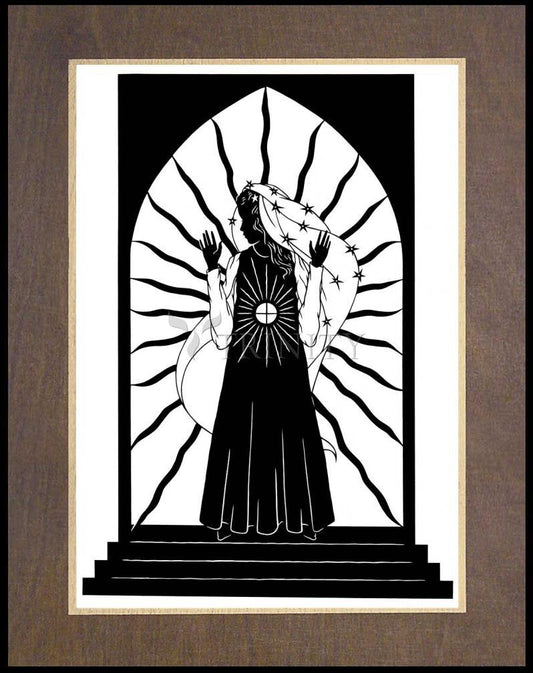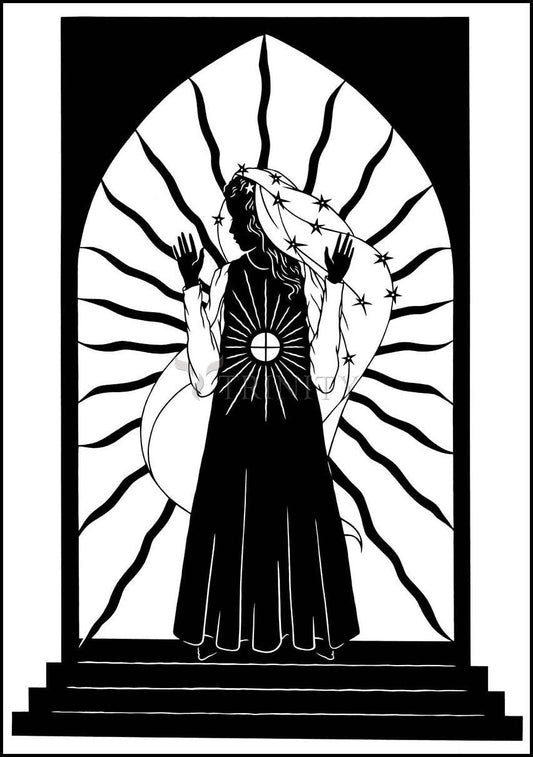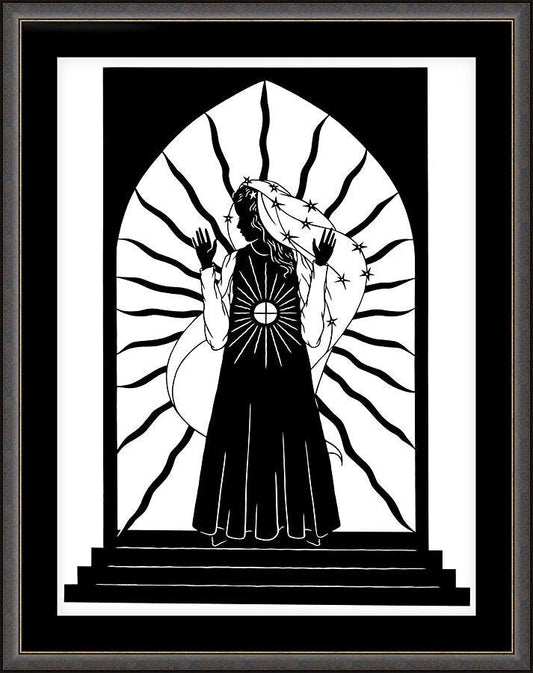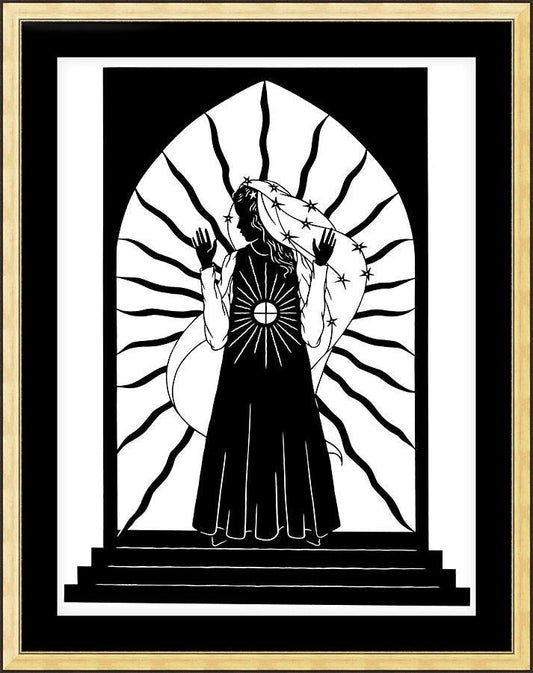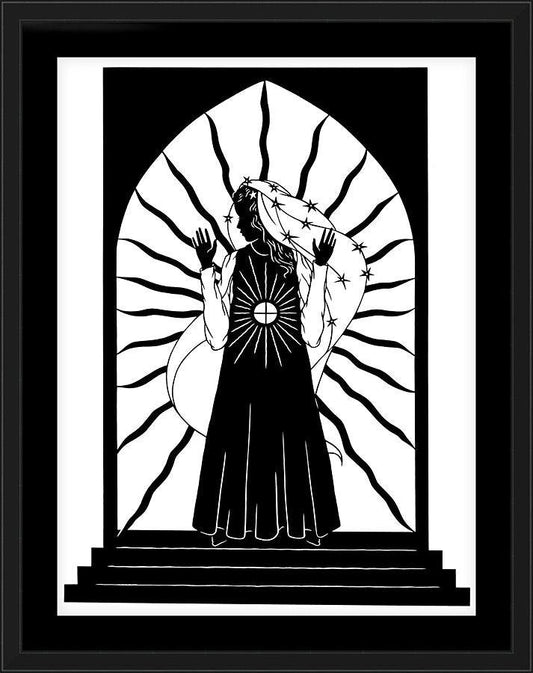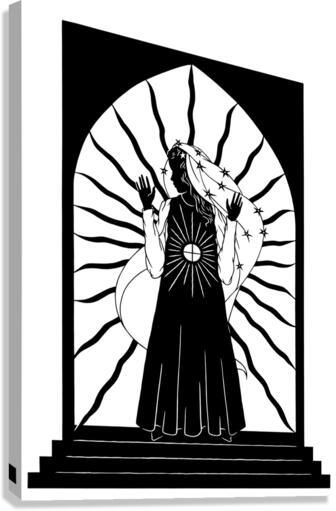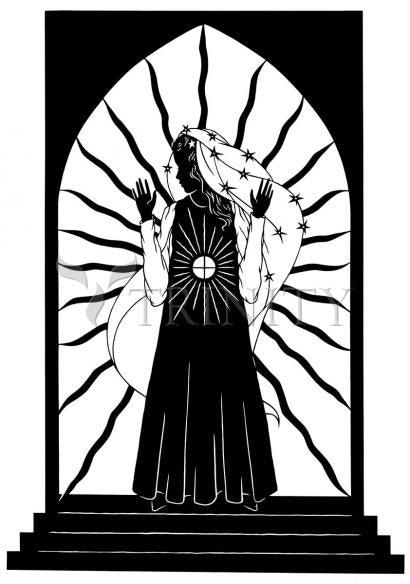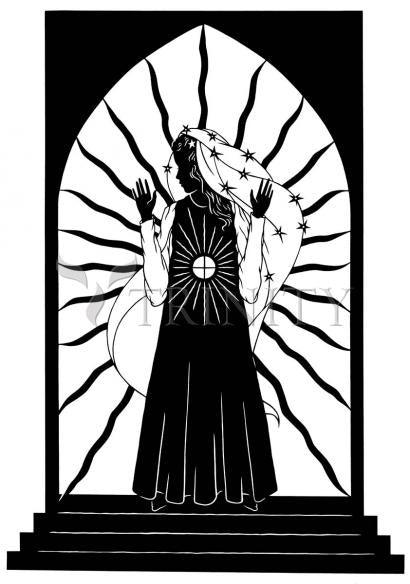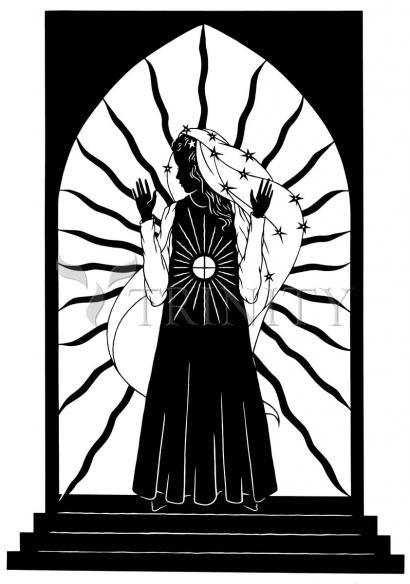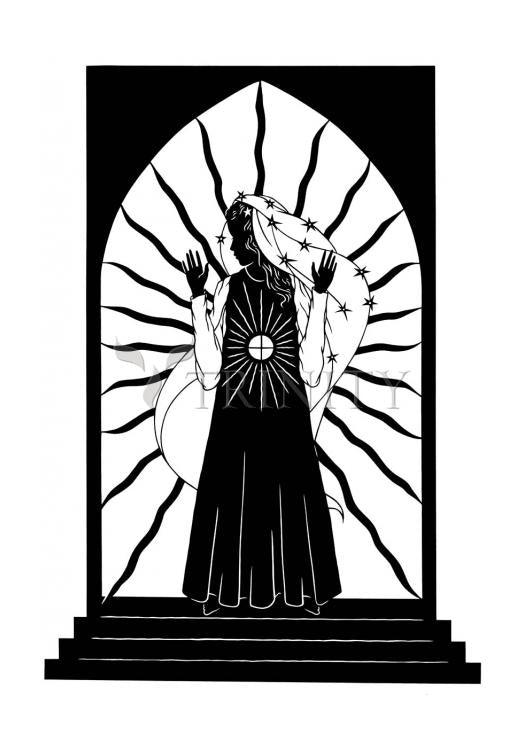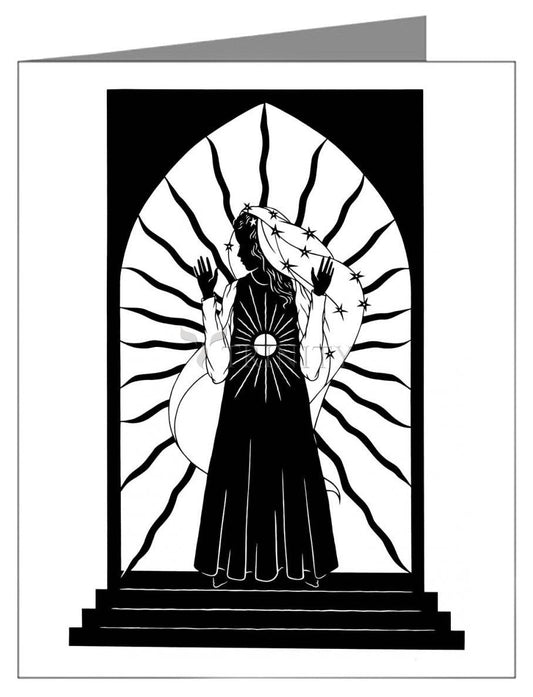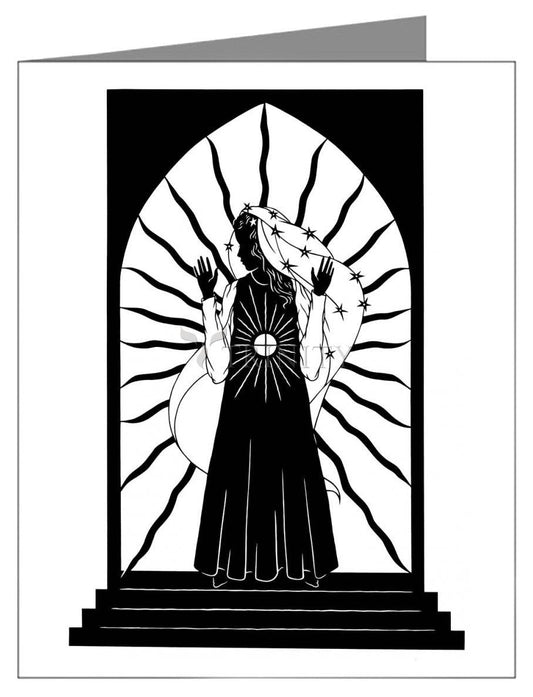This title was given to our Blessed Mother in May 1868 by Saint Peter Julian Eymard to honor her in her relationship to the Holy Eucharist and to place her before us as a model in our duties and devotion tothe Blessed Sacrament.
Our Lady gives witness to being Christian.In her conduct toward the Blessed Sacrament, we learn what ours should be!She believed in the reality of Christ's presence in the Holy Eucharist.In other words, the virtue of faith was as necessary for her as it is for us.
Great was her faith in her son, the Son of God, our Savior, and in all his teachings and deeds.This faith of hers found its particular exercise in regard to the Blessed Sacrament, the mystery of faith, the denial of which implies the destruction of the whole structure of our belief.
A second point in which Mary conformed to thegeneral body of the faithful washer Sunday attendance at the Eucharist.And still another point in which the Blessed Virgin is our model is in her reception of Holy Communion during her life, and at the moment of her death.By her faith in and her love for our Lord in the Eucharist, Mary is an example for Christians and thereby brings us to fervent devotion to him.Truly, we can call Mary, Our Lady of the Blessed Sacrament, and follow her faith and love for Jesus in the Eucharist.
Our Lady of the Blessed Sacrament is the chosen and official patroness of the Congregation of the Blessed Sacrament.Her feast day is celebrated on May 13, the date on which the new Congregation received Archdiocesan approbation in Paris in 1856.
Some may think that the invocation Our Lady of the Eucharist is preferable to that above, but the former does not penetrate as deeply into the matter, since the word Eucharist does not refer to the sacramental values which are the most essential part of the sacrament.As Dom Vonier, commenting on Saint Thomas Aquinas carefully states: "The Eucharist is a sacrament; it is nothing but a sacrament" Tantum ergo sacramentum veneremur cernui (Let us bow down in adoration before so great a sacrament).It is the most popular, as well as the most technically exact, expression of Catholic admiration for the great gift of the Eucharist" It would be truly disastrous if at any time we came to look upon the Eucharist in its sacrificial aspect as something less sacramental or even not sacramental, leaving the sacramental denomination exclusively to the reception of Christ's body and blood."
"By Fr. Lionel Lavigne, S.S.S.



